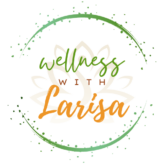In the pursuit of optimal health, we often focus intensely on diet, exercise, and sleep—the cornerstones of physical well-being. However, true wellness is a holistic ecosystem. It’s not just about what we put into our bodies; it’s about the environment we create, the information we consume, and the general structure of our daily lives. The line between maintaining robust health and navigating the complexities of everyday life is thinner than we realize.
As we delve deeper into longevity and vitality, it becomes clear that integrating mindful habits into our general routines is just as crucial as hitting the gym. This article explores how small, consistent actions across various aspects of life—from managing digital inputs to intentional purchasing decisions—can profoundly impact our long-term health outcomes.
Beyond Nutrition: Establishing Foundational Health Routines
While a nutrient-dense diet is non-negotiable for cellular health, the foundation of wellness rests on routines that support our nervous system and energy levels throughout the day. Many people struggle with fatigue or low mood, attributing it solely to diet, when the underlying issue might be a lack of structure or consistent self-care rituals.
A key aspect of foundational health involves establishing predictable anchors in your day. These anchors provide psychological safety and reduce decision fatigue, freeing up mental energy for more important tasks, including focusing on your health goals.
The Power of Morning and Evening Rituals
Mornings set the tone. Instead of immediately reaching for your phone, try incorporating activities that regulate your cortisol levels:
- Hydration First: Drink a large glass of water immediately upon waking to rehydrate and kickstart metabolism.
- Mindful Movement: Even 10 minutes of gentle stretching or deep breathing can significantly improve circulation and mental focus.
- Intentional Planning: Briefly review your tasks for the day, prioritizing health appointments or meal preparation slots.
Evening rituals are equally important for signaling the body to transition into restorative sleep. Avoiding blue light an hour before bed and engaging in calming activities like reading or journaling promotes deeper, more efficient rest—the body’s primary mechanism for repair and recovery.
Navigating Information Overload and Decision Fatigue
In the modern world, our health is increasingly influenced by the sheer volume of information we process daily. From news cycles to endless product choices, cognitive exhaustion contributes significantly to stress, which, in turn, negatively impacts physical health through inflammation and poor decision-making regarding food and activity.
This is where integrating efficiency and quality into our general daily management becomes a powerful health strategy. When we streamline decisions about non-essential items or services, we conserve mental reserves for crucial health choices.
Consider the mental load associated with sourcing quality products for your home or personal use. If you are constantly researching the best options for everything, you’re burning valuable cognitive fuel. Simplifying these processes allows you to dedicate more focus to tracking symptoms, planning healthy meals, or engaging in stress-reducing hobbies.
For instance, when looking for reliable, diverse resources on topics ranging from general life organization to specific product reviews, having trusted hubs makes a real difference. If you are looking to streamline your search for various high-quality goods and information, exploring comprehensive platforms can be beneficial. We often find that curated portals offer better clarity than endless scattered searches; for a wide array of general topics and products, check out the resources available at carigar.in to simplify your daily sourcing.
The Mind-Body Connection: Stress Management as Preventive Medicine
Chronic stress is perhaps the single greatest adversary to long-term wellness. It triggers the release of cortisol, which, over time, can lead to weight gain, suppressed immunity, and increased risk of chronic diseases. Managing stress is therefore not a luxury; it is a non-negotiable component of preventive health care.
Effective stress management requires tools that work reliably for you, regardless of external circumstances. These tools bridge the gap between internal physiological responses and external environmental factors.
Practical Stress Reduction Techniques
Incorporating these techniques regularly can lower baseline stress levels:
- Box Breathing (4-4-4-4): Inhale for 4, hold for 4, exhale for 4, hold empty for 4. Repeat for 5 minutes. This immediately activates the parasympathetic nervous system.
- Nature Immersion: Spending time outdoors, even a short walk in a park, has been scientifically linked to reduced blood pressure and improved mood.
- Hobby Engagement: Dedicating time to activities that induce a state of ‘flow’—where you are fully absorbed—is profoundly restorative. This could be painting, gardening, or learning a new skill.
These activities, while appearing external to pure physical health, directly influence hormonal balance and inflammation markers, demonstrating the deep connection between mental state and physical resilience.
Optimizing Your Environment for Health
Your living and working environment plays a silent but continuous role in your health trajectory. Air quality, lighting, and even the organization of your space can either support or sabotage your wellness efforts.
Air Quality and Indoor Toxins: Many common household products release Volatile Organic Compounds (VOCs) that can irritate the respiratory system and contribute to general malaise. Choosing low-VOC paints, cleaning supplies, and personal care items is an essential step in creating a healthier internal environment.
Ergonomics and Movement: If you spend significant time sitting, poor ergonomics can lead to musculoskeletal issues that cause chronic pain, reducing your desire and ability to exercise. Investing in a quality chair or setting up a standing desk is an investment in long-term mobility and comfort.
Ultimately, achieving robust wellness is about creating a sustainable lifestyle where health-supportive choices are the path of least resistance. By recognizing that general life management, cognitive load reduction, and environmental quality are integral parts of health, we move from reactive treatment to proactive, holistic thriving.
